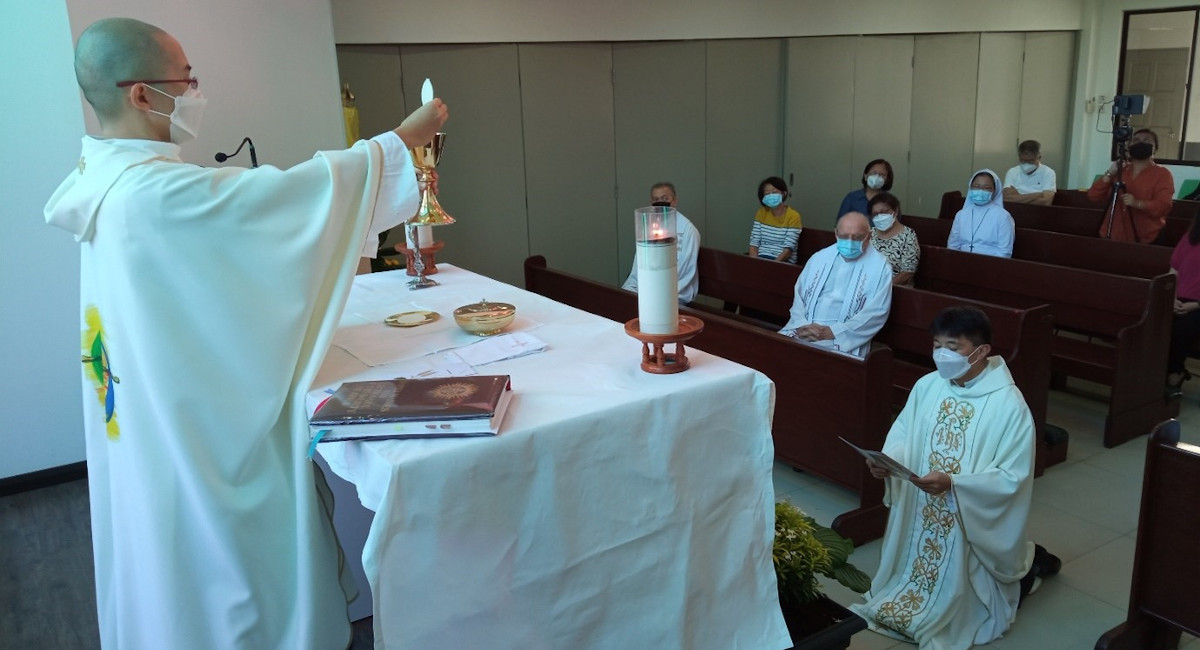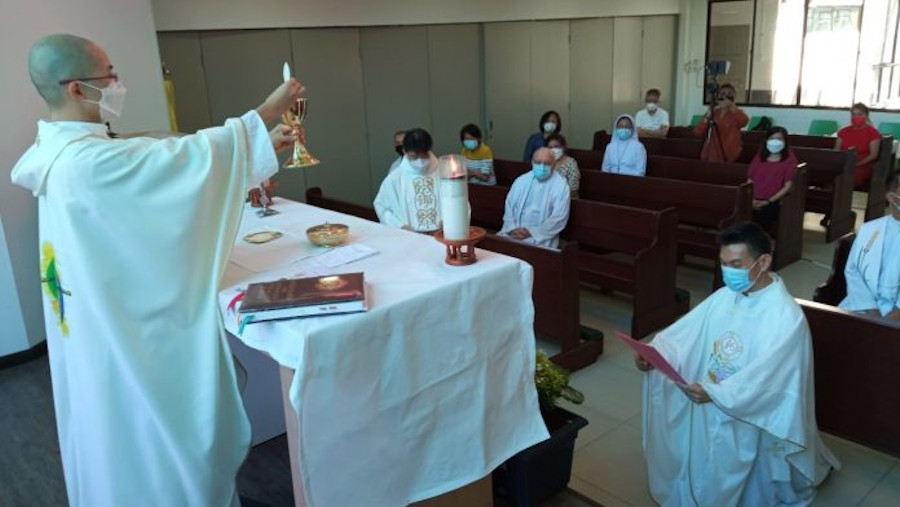
On 31 July, the feast day of St Ignatius of Loyola, Fr Alvin Ng SJ and Fr Francis Lim SJ pronounced their solemn perpetual Final Vows in Kuching, Malaysia. Due to the restrictions caused by Covid-19, a limited number of persons attended the Mass. However, a large number of viewers participated in the live stream.
Fr Stanley Goh SJ received the vows on behalf of the Regional Superior of Malaysia-Singapore, Fr Chris Soh SJ, who in turn represented Fr General Arturo Sosa SJ. Fr Soh could not make it due to travel restrictions from the pandemic.
As with all profession of Jesuit vows, it was done professio ad hostiam (profession before the Eucharistic host). The vows were made by Fr Ng and Fr Lim, one after the other, after the showing of the host by the presider just before communion.
When Ignatius and his companions made their final profession in the Basilica of St Paul-Outside-the-Walls on 22 April 1541, they used a rite that was contrary to the customary vow ceremonies of that time until even today. The rite, which later passed into the Constitutions of the Society of Jesus, is used for both the profession of First Vows and Final Vows. It is not the professio super altare (profession on the altar) or professio in manus (profession into the hands), but professio ad hostiam to signify it is neither a stable monastic order nor a mendicant one. It is an apostolic order with a contemplative aspect.

From a mystical and spiritual point of view, the Jesuit professing the vows makes his vows to the real presence of Jesus Christ in the Blessed Sacrament. Jesuits are called to follow Jesus Christ closely and their company is known by his holy name. Therefore, Jesuits make their vows in front of him whose name they bear.
Communion follows with the value of a confirmation, a ratification, a sacred seal set by Christ on the commitment that the professed has made to him. With this communion a sort of covenant is made between God in the Blessed Sacrament, the Society through the representation of the superior holding the host, and the professed. For by administering the Eucharist to the professed the superior shows that he accepts his profession and receives him into communion with himself and the Society. By the gift of himself, Christ promises the professed his strength so that he can keep the commitment that he has just made. By receiving Christ, the professed presents and offers himself to God.
At his Final Vows, the Jesuit who has given himself unconditionally to the Society of Jesus during his First Vows is accepted unconditionally as well by the Society. This is the reason why Final Vows happen many years after ordination for Jesuit priests. After many years of probation, the superior can go to sleep in peace with the opinion that he can leave the Society of Jesus in good hands when a particular Jesuit is accepted into Final Vows.
Fr Ng is thankful for his Final Vows; he says, “I am humbled and grateful for the gift of Final Vows in the Society of Jesus.” For Fr Lim, he is contented that, “Final Vows are the natural progression of my life within the Society of Jesus.” [Archdiocese of Kuching]

